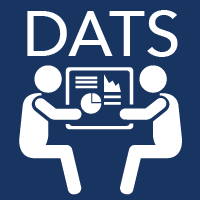The Data Analysis Tools Series at the Berkeley Institute for Data Science
The Data Analysis Tools Series has come to an end.
Thank you for your support and please click here to read about our future plans.
- Fall 2018Upcoming Topics
- 2014-2018Previous Topics
What:
This is a weekly peer learning group for sharing skills and best practices for research computing and data science. In these friendly sessions, peers at all levels of experience share topics useful in our data analysis and software development workflows.
This meeting would be a great venue for introducing new libraries, showing off useful features of a data processing/analysis/visualization library or programming language you’re using, or bringing up a computational problem you’re having.
Who:
Anyone interested how to learn and do things by programming computers is welcome to come to our meetings. You don’t need to be affiliated with UC Berkeley or BIDS and you don’t need to come every week. There is no set of prerequisites, although we frequently use bash and the command line, python, R, GitHub, and Jupyter notebooks.
The group is currently led by Caroline Cypranowska (mostly), Diya Das, Stuart Geiger and Aaron Culich. If you have questions or would like to lead a session, you can reach all of us at thw-admin@berkeley.edu.
Where:
We meet at the Berkeley Institute for Data Science. Room 190, Doe Library, The University of California - Berkeley. It is on the ground floor of the main library. If you walk up the big marble steps across Memorial Glade, then turn left right as you walk in, you’ll be there!
When:
Mondays at 4pm (Berkeley time – starting officially at 4:10, but have a friendly chat from 4:00-4:10 if you like). While the main session should occupy less than an hour, the lightning talks and hacking session usually go on until 5:30pm. See the upcoming topics list for the topic for this week.
How:
Communications
- Mailing list
- Slack channel if you’ve got an account
- Go here to get an invite to the slack channel – invite token “berkeley”
Participating:
Participating is really easy.
- At **4:00pm**, we gather and go through a round of introductions. New faces are always appearing!
- Next, a volunteer will give a **tutorial** or lead a **discussion** about a computational topic. This topic can be anything useful, new, or interesting to scientists who compute. It may be some new skill you have recently picked up in your research, a productivity tool you have recently learned to love, an overview of a useful library, or anything you feel we would enjoy learning.
- Finally, there will be a time for a couple of **Lightning Talks**, which are 5-10 minute blasts of information about a particular topic or question of interest to the group. **Note** that the lightning talk time is a good way to bring a question to the group. If you have a bug you need help with, here's the place to ask many ears about it at once.
Why:
The tenets of scientific endeavor (e.g., data control, reproducibility, comprehensive documentation, and peer review) suffer in projects that fail to make use of current development tools such as unit testing, version control, automated documentation, and others.
To avoid these pitfalls, this weekly meeting exists for sharing skills and best practices for computational scientific applications. This group is modeled after The Hacker Within, which began as a student organization at the University of Wisconsin-Madison. DATS began as a chapter of The Hacker Within. Each chapter convenes a community of scientists, at all levels of their education and training, to share their knowledge and best practices in using computing to accomplish their work.





